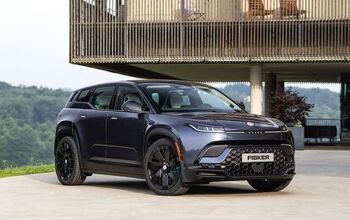Electric vs. Gasoline Cars: Uncovering the Real Climate Savior
Contrary to common misconceptions, electric vehicles (EVs) generally have a smaller carbon footprint compared to traditional gasoline cars. This advantage remains true even when considering the electricity utilized for charging EVs. One key distinction is that EVs produce no direct tailpipe emissions. However, the production of electricity for EV charging can result in carbon emissions, depending on the energy source.
The carbon pollution from electricity varies based on local energy production methods. For instance, electricity generated from coal or natural gas is associated with higher carbon emissions, while renewable sources like wind or solar energy contribute negligible carbon pollution. Despite the variance in electricity production methods, studies indicate that EVs are typically linked to lower greenhouse gas emissions than the average new gasoline vehicle.
The shift towards renewable energy sources further enhances the environmental benefits of EVs. As more renewable energy sources are integrated into the power grid, the overall greenhouse gas emissions associated with EVs can be further reduced. Notably, in 2020, renewable energy sources rose to become the second-most dominant source of electricity in the United States.
Tools to Measure Your EV's Environmental Impact
The Environmental Protection Agency (EPA) and the Department of Energy (DOE) offer valuable resources for assessing the environmental impact of EVs. The EPA's Power Profiler is an interactive tool that provides information about the electricity production mix in different regions. By entering a zip code, users can understand the specific energy sources powering their local area.
Additionally, the Beyond Tailpipe Emissions Calculator, developed by the EPA and DOE, is a user-friendly tool designed to estimate the greenhouse gas emissions from charging and driving an EV or a plug-in hybrid electric vehicle (PHEV). This tool allows users to select specific EV or PHEV models and input their zip code to compare the CO2 emissions from these vehicles with those from gasoline cars. These tools empower individuals to make informed decisions about the environmental impact of their transportation choices.
This article was co-written using AI and was then heavily edited and optimized by our editorial team.
More by TTAC Staff
Latest Car Reviews
Read moreLatest Product Reviews
Read moreRecent Comments
- ToolGuy I found this particular episode to be incredibly offensive.I am shocked that eBay Motors is supporting this kind of language and attitudes in 2024.I will certainly keep this in mind next time I am choosing where to buy auto parts (I buy a LOT of auto parts).
- SaulTigh When I was young in the late 80's one of my friends had the "cool dad." You know the guy, first to buy a Betamax and a C-band satellite dish. Couple of stand up arcade games in the den. Bought my friend an Atari 2600 as soon as they came out. He had two of these crap heaps. One that only ran half the time and one for parts in the yard. My middle school brain though he was the most awesome dad ever, buying us pizza and letting us watch R rated movies recorded on free HBO weekend. At the time I though he was much better than my boring father.Now with adult hindsight, I now know he was "dad who should have taken better care of his family" and not had so many toys.
- Dave Has to be Indy 500. Many more leaders and front passes than NASCAR, and Monaco is unwatchable with the inability to pass on that circuit.
- Jeff How did the discussion get from an article about a 56 billion dollar pay package for Elon Musk to a proposal to charge a per mile tax on EVs in California or paying increase registration on vehicles to make up for lost gas tax revenue? I thought such a discussion would better fit Matt's Gas Wars series.
- Master Baiter Both people who bought ID.4s will be interested in this post.


































Comments
Join the conversation